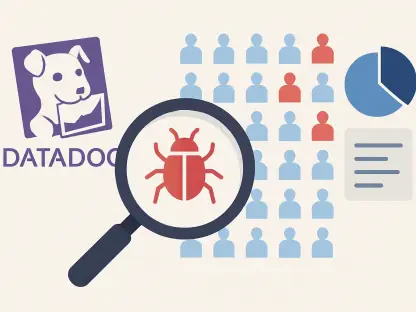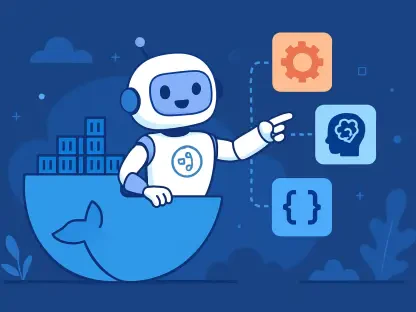In today’s fast-paced software development environment, Agile and Scrum frameworks have become the go-to methodologies for managing projects. Central to these frameworks are the roles of Scrum masters and product owners, who ensure that everything runs smoothly and efficiently. However, even the most seasoned professionals can benefit from a little extra help. This is where generative AI tools come into the picture. While some may fear that AI could replace human roles, the reality is far more collaborative. These tools aim to augment and streamline the efforts of Agile teams, making processes more efficient and effective.
The Role of AI in Agile and Scrum Frameworks
Enhancing, Not Replacing
AI tools are designed to support, not replace, the essential roles of Scrum masters and product owners. They act as personal assistants, handling routine tasks and allowing these professionals to focus on more strategic activities. Generative AI excels in language processing, enabling it to produce clean and readable user stories, generate project mission statements, and break down tasks for backlogs accurately. AI’s role as an augmentative tool is crucial for maintaining the human touch in project management. While AI can handle mundane tasks, human intelligence and creativity are irreplaceable. These tools are not just about enhancing efficiency but also about enriching the quality of work, allowing Agile teams to concentrate on innovation and problem-solving.Generative AI has advanced to the point where it can produce code, generate user stories from stakeholder input, and draft intricate project plans. This frees up valuable human hours that can be redirected toward high-level planning and decision-making. Imagine an AI tool that can draft a project mission statement based on stakeholder meetings, providing a solid starting point for human refinement. The language processing capabilities of AI are particularly beneficial in Agile environments. These tools can translate complex requirements into simple, readable user stories, ensuring that everyone on the team understands the objectives clearly. This reduces the risk of miscommunication and ensures that the team remains aligned with project goals.
Interactive Project Management Tools
Integration with Project Management Software
Advanced AI tools seamlessly integrate with project management software like Wrike and Asana. These integrations enable the AI to track and analyze data in real-time, facilitating more accurate task prioritization, sprint planning, and backlog management. For example, by analyzing dependencies and backlog items, AI tools can recommend which tasks should be prioritized, helping Scrum masters make more informed decisions. Such integrations also automate routine administrative tasks, allowing Scrum masters to focus more on coaching the team and ensuring that Agile principles are adhered to. The result is a more streamlined and efficient workflow, with less time spent on manual data entry and more time devoted to value-adding activities.One of the significant challenges in Agile project management is predicting how long tasks will take. AI tools can analyze detailed task descriptions and historical project data to provide accurate predictions of task durations. This helps in avoiding sprint overflows and ensures better task breakdowns, thereby improving the predictability of project timelines. For instance, tools like Motion can break down tasks more granularly, offering insights into when tasks should be split into smaller units to reduce risk. This level of analysis helps Scrum masters allocate tasks more effectively, ensuring that sprints are manageable and goals are achievable within the designated timeframes.
Automation of Routine Tasks
Meeting Transcriptions and Summarizations
AI-powered tools like Spinach.io and ClickUp can transcribe stand-ups, retrospectives, and other meetings, compiling detailed notes and summaries. This automation saves significant time and ensures that no important information is missed. When Scrum masters and product owners can focus more on the substance of the meetings rather than the note-taking, the quality of discussions improves. These tools also provide quick summaries and action items, making it easier to follow up on decisions and ensure that tasks are executed as planned. The automation of routine documentation tasks frees up valuable time for more strategic planning and interpersonal activities, which are crucial in Agile environments.AI tools can generate sophisticated reports and visuals that provide stakeholders with clear and concise information about project progress. Tools like Wrike and Monday offer comprehensive reporting features that eliminate the need for manual compilation of data. These AI-generated reports are not only accurate but also visually appealing, making it easier to communicate complex project statuses to stakeholders. Such advanced analytics and high-quality visuals ensure that everyone involved in the project, from team members to stakeholders, has a clear understanding of where the project stands. This level of transparency and clarity is essential for maintaining stakeholder confidence and ensuring smooth project execution.
Recognizing Developer Strengths
Performance Tracking and Analysis
In today’s rapid-paced software development environment, Agile and Scrum frameworks have become the primary methodologies for project management. Central to these frameworks are the roles of Scrum masters and product owners, who play crucial roles in ensuring that everything runs smoothly and efficiently. Despite their expertise, even the most seasoned professionals can benefit from some additional assistance. This is where generative AI tools come into play.While there may be concerns that AI could replace human roles, the reality is far more collaborative. These advanced tools are designed to augment and streamline the efforts of Agile teams rather than replace them. By automating repetitive tasks, providing data-driven insights, and facilitating better decision-making, AI can make processes more efficient and effective.For example, AI can help Scrum masters by automating the tracking of sprint progress and identifying potential roadblocks early on. Product owners can leverage AI to analyze market trends and user feedback more quickly, providing them with actionable insights that inform better product decisions. The result is a more agile, responsive, and ultimately successful development process.Incorporating AI into Agile and Scrum frameworks represents the next evolution in project management. By augmenting human capabilities rather than replacing them, generative AI tools can help teams become more efficient, making them better equipped to handle the complexities of modern software development.









